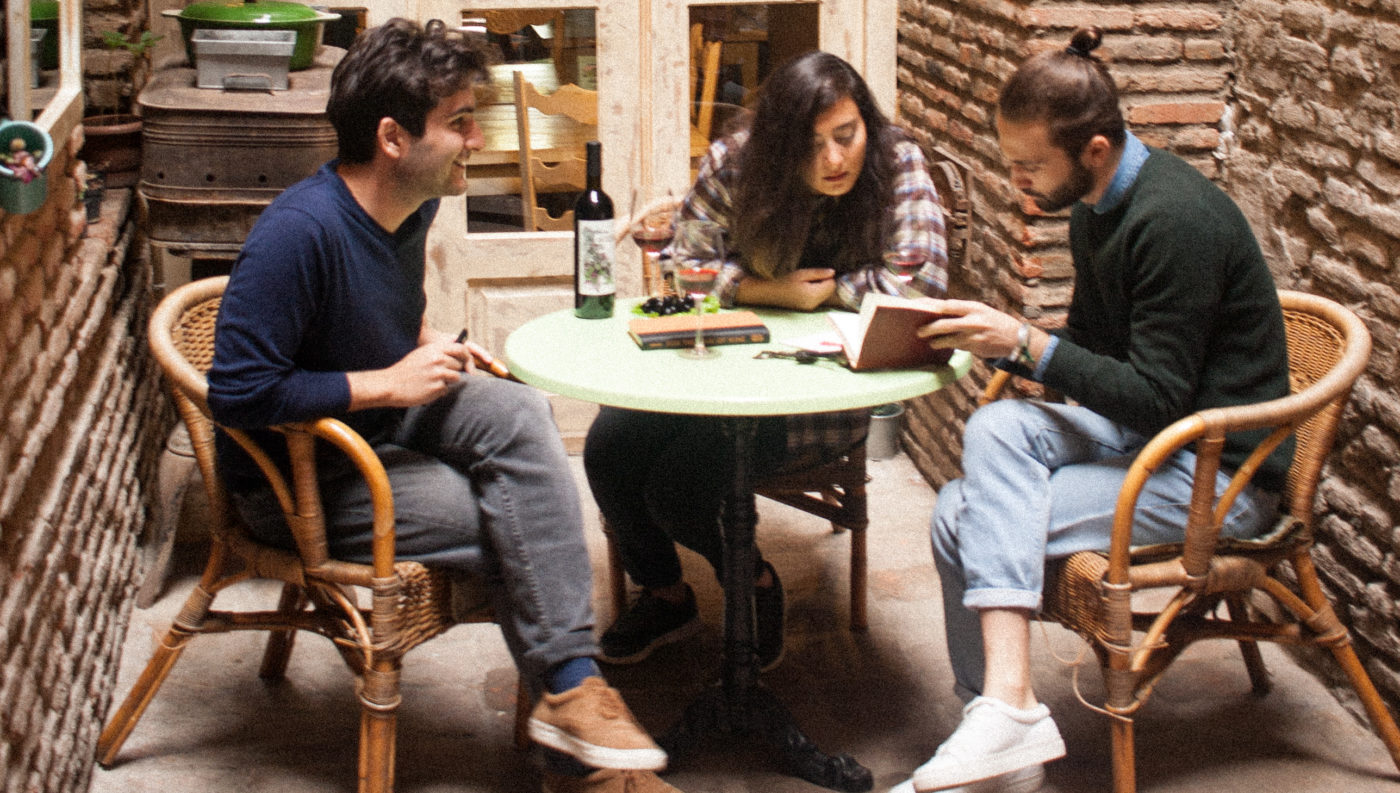Artizani winemakers
Salome, Irakli and David are 3 young wine lovers who are passionate about making natural wines from indigenous Georgian grape varieties.

€16.95
This Artizani Saperavi is a completely naturally produced wine, free from additives (also no added sulphite). A beautiful deep red color obtained from one of the best regions of Kakheti for the Saperavi grape: Khashmi. And with fruity aromas with a fresh acidity a pleasure to drink!
Out of stock
The Artizani wines are made without technological progress, the only interventions on the part of the winemaker are: setting harvest dates, deciding on maceration * duration, agreeing on the share of the peel and stalks, participation of wine lees on the wine making process and selecting the theorem method.
The winemakers have chosen to macerate this Saperavi wine for only 7 days, for several reasons that are essential to their philosophy of winemaking:
• First, the amount of anthocyanin extraction is highest after 6-7 days of maceration, then the amount begins to decrease when the stems start to absorb them. The 7-day process is therefore optimal to extract the necessary compounds for color stabilization and to achieve desired properties;
• Since the winemakers of Artizani do not add sulphites to their wines, it is not intended to be 10-15 years old. That is why we limit the amount of tannins that end up in the wine through 7 days of maceration: in this way our wines are already in good shape the following year.
• Moreover, the presence of skins and stems creates a “wine cap”, which increases the fermentation temperature with time. However, by storing it after 7 days, they ensure that the rest of the alcoholic fermentation continues under a cooler temperature, preserving more aromas and obtaining a more fruity profile of the wine.
The malolactic fermentation also happens wildly. Usually in the spring. The winemakers measure the malic acid and lactic acid content to find out when the fermentation process is complete and to distribute the wines accordingly. The temperature in their basement is around 20-22C during this period.
For wine making, they only use stainless steel containers.
Khashmi, where our grapes come from, is located at an altitude of 750 meters (one of the highest locations for the Saperavi grapes) in the westernmost part of the Kakheti region. This region is known for its cool climate. The harvest in Khashmi starts in October (generally the harvest period of Saperavi in Kakheti in September). This results in grapes that are fresher in acidity and have a much more fertile profile.
* = Maceration refers to how long the grape skins touch the juice, so its duration does not necessarily have to be equal to the duration of the fermentation process. The maceration method is purely dependent on the wine-making style, the grapes, the season etc., B.v. wine can start and end with alcoholic fermentation without any maceration, if a winemaker decides to do so.
Salome, Irakli and David are 3 young wine lovers who are passionate about making natural wines from indigenous Georgian grape varieties.
